Modal title
One fine body…
October 24, 2018
Five Charts: Why Users Are Fed Up with Digital Ads
|
People are annoyed by the state of advertising
While many people understand that advertising is a necessary burden that comes with viewing free content, the current state of digital advertising is still annoying a lot of folks, according to several studies.In an August survey of 1,079 adult US internet users conducted by Janrain, the most popular response given when respondents were asked which statement about online ads they agreed with most was that ads are too aggressive. Nearly one-fifth of respondents acknowledged that online ads are effective in appealing to their interests and needs, but found the phenomenon creepy nonetheless. ÒThe vanity key performance indicators (KPIs) like viewability have made it more important to load ads over content, even for good publishers,Ó said Trust Metrics CEO Marc Goldberg. ÒThe good publishers try and keep up because they are getting optimized off plans due to low viewability.Ó 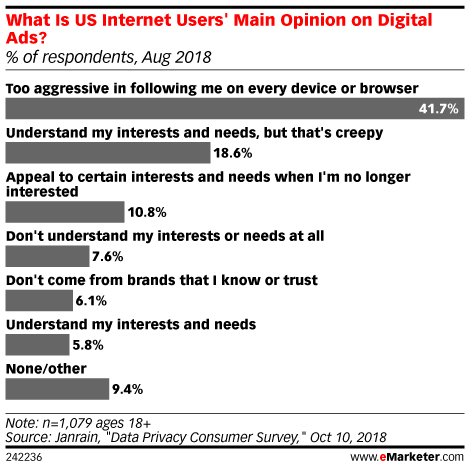 Other research shows that people believe ads are too intrusive. In a survey of 1,001 US internet users by Kantar Millward Brown, 71% of respondents said that ads are more intrusive now than they were three years ago. A similar number indicated theyÕre seeing more ads overall, and even more agreed that ads are now appearing in more places. ÒTo avoid alienating consumers, itÕs critical for marketers to look beyond metrics and instead focus on the ultimate experience they are providing to consumers, while respecting and maintaining their trust,Ó said Elaine Chen, vice president of marketing communications at Kantar Media. 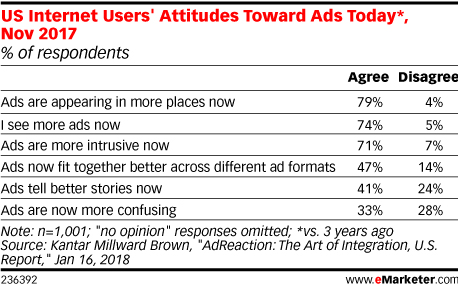 Meanwhile, an April 2017 survey of 1,111 UK internet users by Mumsnet and Saatchi & Saatchi found that people were particularly irritated by retargeted ads. Just 6% of respondents said they liked them. In contrast, about a third said they didn't. 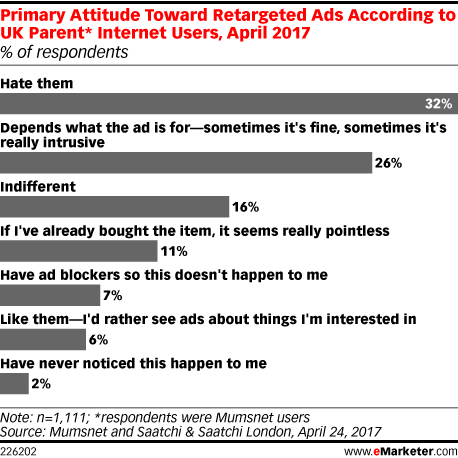 Perhaps the biggest consequence of annoying ads is that they contribute to ad blocking. eMarketer estimates that about one-fifth of the US population will use an ad blocker 2018. According to an August survey of 103 North American ad agencies, publishers and marketers conducted by Pressboard, a similar proportion of advertising professionals block ads, too. 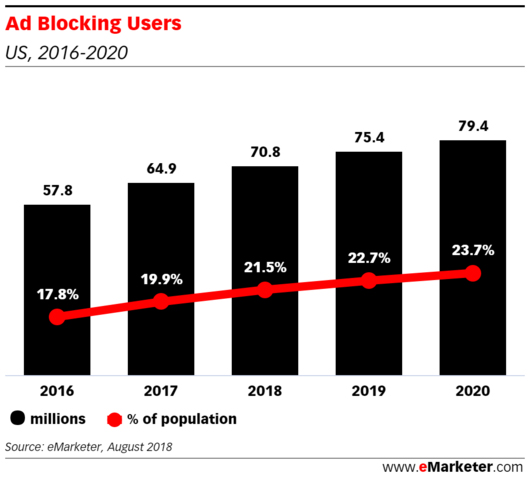 AdvertisersÕ incentives to hit short-term KPIs often arenÕt aligned with user experience, and this disconnect contributes to ad blocking, according to Goldberg. About half of the 39,438 ad blocking users surveyed by GlobalWebIndex in Q3 2017 said one of the primary factors that led them to block ads was that they encountered too many annoying and irrelevant ads. 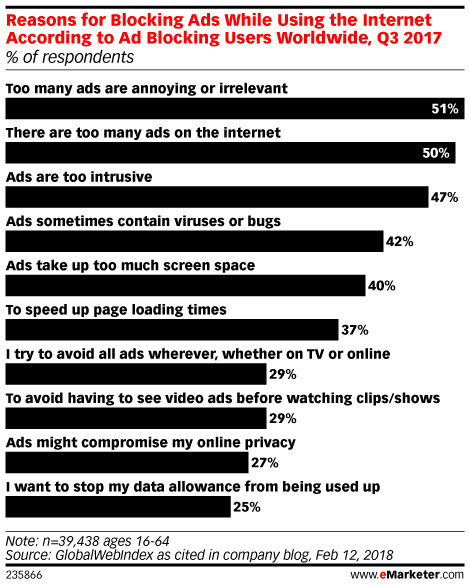 Copyright 2018 eMarketer inc. All rights reserved. From https://www.emarketer.com. By Ross Benes.
|
To view all articles, check out the Internet Travel Monitor Archive